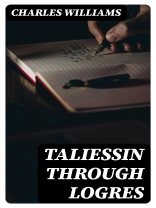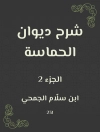In 'Taliessin through Logres, ’ Charles Williams masterfully weaves Arthurian legend with profound explorations of spirituality and human experience. This sequence of poems is not just a retelling of mythical narratives; it serves as a philosophical canvas where Williams employs rich, evocative imagery and a unique blend of medieval and modern English styles. The work reflects a deep engagement with the metaphysical, resonating with themes of love, sacrifice, and the quest for truth amidst the chaotic backdrop of a fractured world. Williams’s distinctive voice interlaces mythic elements with introspective insights, creating a meditative landscape that invites readers to ponder the nature of reality and human connection in a mythic context. Charles Williams was not only a poet but also a prominent member of the Inklings, along with C.S. Lewis and J.R.R. Tolkien. His deep interest in theology, literature, and the mystical traditions of Christianity greatly influenced his writing. Williams’s own spiritual journey, including his fascination with the interplay between the sacred and the mundane, underpins the rich textures of 'Taliessin through Logres, ’ making his work resonate on multiple levels. This book is essential for readers interested in the confluence of poetry and philosophy, as well as those enamored with Arthurian lore. Williams’s ability to evoke both wonder and contemplation renders this collection a compelling invitation to delve into the depths of human existence. Whether you seek beauty in language or enlightenment through myth, 'Taliessin through Logres’ promises an experience that is both profound and transformative.
O autorze
Charles Walter Stansby Williams (1886–1945) was a British poet, novelist, theologian, and literary critic who is often associated with the Inklings, the informal Oxford literary group that included C.S. Lewis and J.R.R. Tolkien. Although less well known than his fellow Inklings, Williams developed a devoted following through his versatile and imaginative works which often combined elements of fantasy, spirituality, and mythology. 'Taliessin through Logres’ is one of his most significant poetic works, published in 1938, which delves into Arthurian legend, exploring the mythical intersection of the temporal and the eternal. Williams’ unique blend of narrative and lyrical poetry in this collection demonstrates his adeptness at metaphysical themes and his innovative approach to spiritual and romantic imaginings. Williams’ literary style is marked by a rich use of symbolism and a deep engagement with theological and mystical ideas. His contributions to literature continue to be studied for their originality and profound exploration of the human experience in relation to the divine. Though his writing style may be dense and complex, Williams’ works reward the diligent reader with glimpses into a mythopoetic world that transcends the boundaries of ordinary life.












